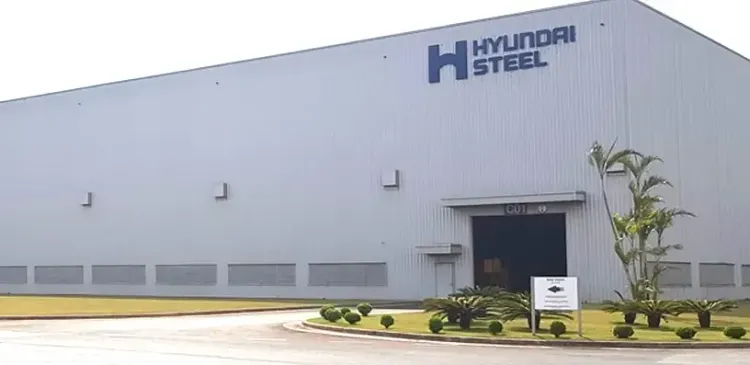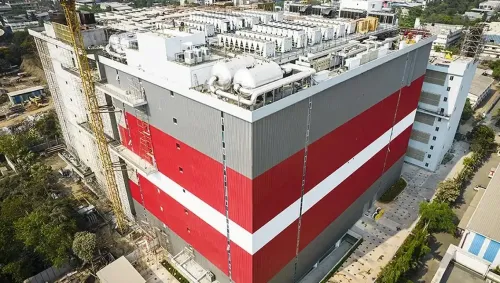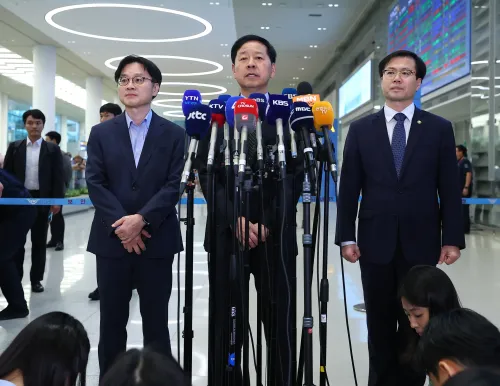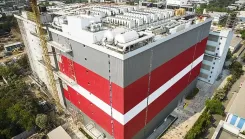Hyundai Steel Halts Cold-Rolled Facility Amid Wage Dispute

Synopsis
Key Takeaways
- Hyundai Steel halts cold-rolled steel production.
- Strike by workers demands higher wages.
- Suspension leads to 270,000 tonnes production loss.
- Company's profit expected to plummet 98%.
- Wage negotiations with the union are stalled.
Seoul, Feb 24 (NationPress) Hyundai Steel, the second-largest steel producer in South Korea by revenue, announced on Monday the suspension of its cold-rolled steel facility due to a month-long labor strike by its employees advocating for wage increases.
The company has ceased operations at the pickling line/tandem cold mill (PL/TCM) unit, a crucial component of its Dangjin integrated steel mill, located approximately 80 kilometers southwest of Seoul, as stated in a recent press release.
This halt of the PL/TCM unit, which eliminates oil and rust from hot-rolled coils before they are transformed into cold-rolled steel products, has immediately stopped operations at the cold-rolled steel plant, according to reports from Yonhap news agency.
"The facility will remain inactive until the unionized workers at the cold-rolled steel plant in Dangjin decide to end the strike to advance their wage negotiations," a spokesperson for the company remarked.
The suspension is projected to lead to a production shortfall of at least 270,000 tonnes, translating to an estimated loss of 25.4 billion won (around $17 million).
This preventive action follows stalled wage discussions with the labor union that have not progressed since late January.
The union is pushing for a basic pay increase of 159,800 won, five months of performance-based salary, and an 18 million won cash bonus for 2024.
In contrast, the company offered a 100,000 won pay rise, along with 4.5 months of salary and 10 million won in bonuses.
The wage hike proposed by the company could result in a staggering 98 percent year-on-year decline in annual net profit, dropping from approximately 443 billion won in 2023 to 8.81 billion won in 2024, according to the firm.
As of Monday, shares of Hyundai Steel fell by 2.08 percent to 25,900 won, significantly underperforming compared to the 0.35 percent loss in the broader Korea Composite Stock Price Index (KOSPI).









